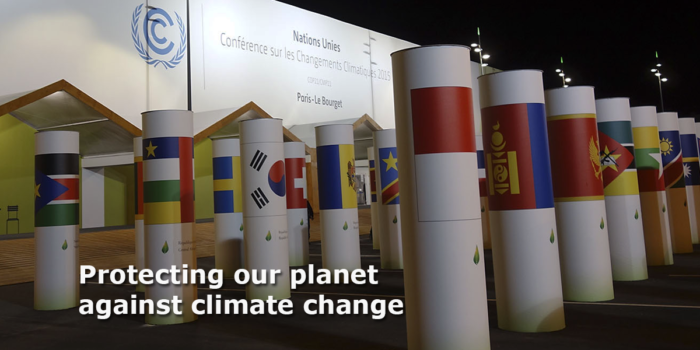7th July 2016 London, UK
Climate change: The opportunity of our age

This week, our Ambassadors and High Commissioners have returned to London for Leadership Week. I took the opportunity to speak with them, alongside my fellow peers in the House of Lords, about the agreement reached at the Paris climate Conference of Parties (COP21) and to provide reassurance about the Government’s commitment to tackling global climate change.
The importance of the Paris Agreement cannot be overstated. It is a major step towards preventing some of the worst risks that climate change presents to the global economy and security.
The FCO’s network of more than 80 climate change attachés, based in British Embassies and High Commissions around the world, played a critical role in the successful deal agreed in Paris. Through dialogue and cooperation with major carbon emitting countries like China and India, negotiating positions were influenced and new partnerships forged.
And through close working with key partners -like South Africa- on the socio economic impacts of climate change, better understandings on more effective mitigation and adaptation measures were developed.
The work of the FCO does not stop at Paris. Our network of climate change attachés is now focused on two key areas – identifying and mitigating the risks and obstacles to implementing the deal, and demonstrating to their host country the economic benefits of the transition to a low carbon economy as well as maximising the commercial opportunities for UK companies linked to this change.
More broadly, the FCO is focused on the delivery of the new cross-Whitehall Prosperity Fund. Announced in the Spending Review last year, it will be worth £1.3 billion over the next five years. The new fund will contribute to poverty reduction and generate opportunities for international and UK business. Work is underway to develop programmes supported by the Fund to help speed up the global transition to a low carbon economy.
The results of earlier prosperity funded projects have already come into fruition, delivering significant prosperity benefits for the UK and our partners overseas. For example, the UK-China energy partnership has just delivered £435 million of Chinese investment into UK offshore wind. The construction of the UK’s biggest offshore wind array in Scotland is expected to create 890 jobs, over £1 billion in local economic benefits over the project’s 25 years, and bring renewable power to 450,000 homes. This investment is a direct result of a series of small prosperity projects starting in 2012, which showcased UK expertise in this area.
It is vital that we maintain the momentum generated in Paris. The EU Referendum result does not change the UK’s commitment to tackling global climate change. Neither does the Referendum impact on the Paris Agreement as a whole – the UK are a party to the UN Framework Convention on Climate Change (UNFCCC) individually as well as through the EU, and the decisions taken in that agreement still stand.
The UK continues to lead the way by setting ambitious domestic climate goals. We were the first country to introduce legally binding emission reduction targets with the advent of the Climate Change Act in 2008, which committed the UK to reduce emissions by 80% by 2050. We have already made great progress towards our goal with latest data indicating that UK emissions in 2015 were 38% lower than in 1990, and 3% lower than in 2014.
Last week, DECC announced the ambitious fifth Carbon Budget, limiting UK carbon emissions to an annual average reduction of 57% for 2028–2032 (from 1990 levels) in line with Climate Change Committee recommendations. This sends a strong signal of continued UK leadership and commitment to tackling global climate change.